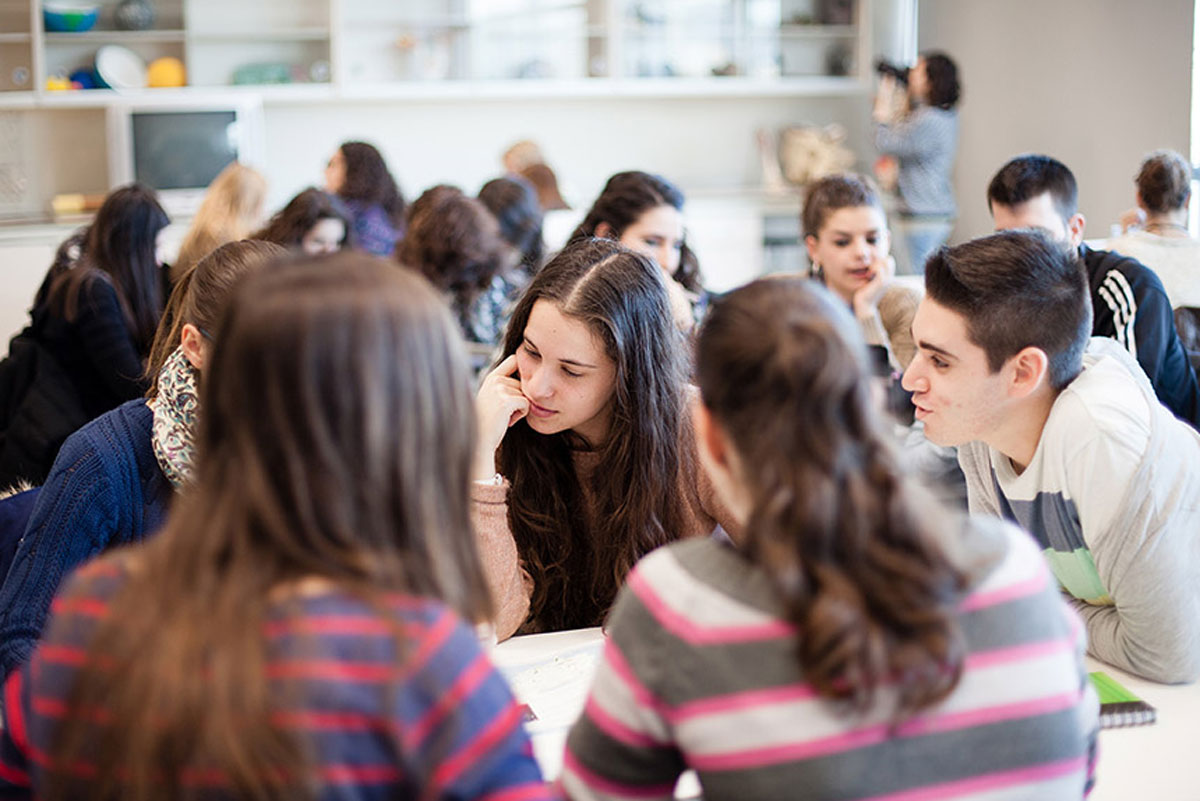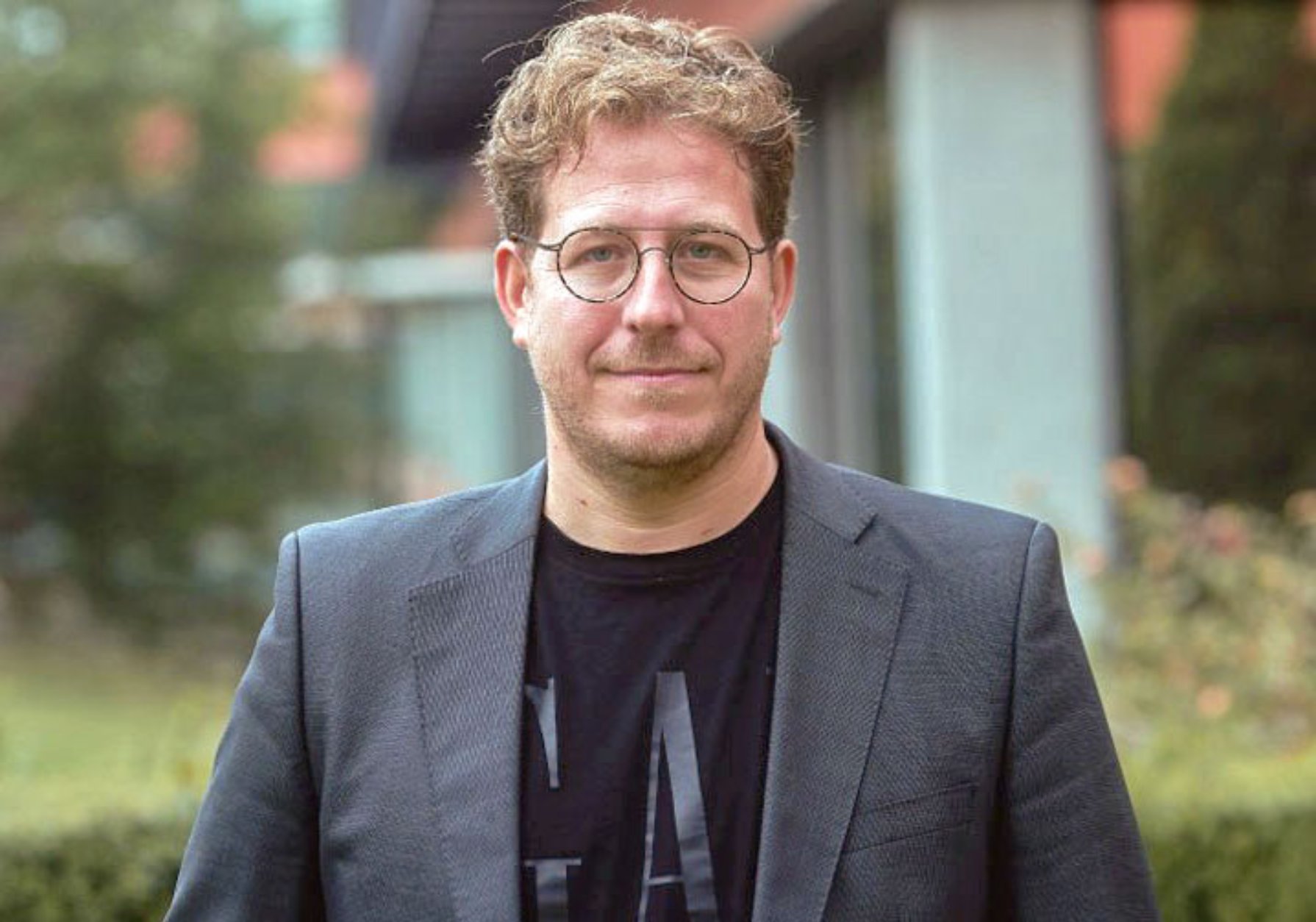Promoting environmental awareness among young people
- Mètode
- Esther Figueres Herraiz
- April 17th, 2024

A conference at the Universitat de València analyses the culture of decline in higher education
Future generations will play a key role in the future of this planet. Therefore, educating them in sustainable development and fostering an ecological awareness is of great importance so that they can value and care for it. In this context, the second edition of the Conference on Curricular Sustainability and SDGs (Sustainable Development Goals) in university education was held on 10 March at the Faculty of Teacher Training of the Universitat de València. Among the speakers were professors from different Spanish universities and some guests such as Jennie Winter, from the Plymouth Marjon University; the writer and professor Enrique Javier Díez, from the University of León, or the director of the magazine Mètode, Martí Dominguez.
Encouraging critical thinking
Sustainability was presented at the conference as a concept that needs to be understood and applied to all aspects of the institution, but how do you get there? For Jennie Winter, dean of teaching and reading at Plymouth Marjon University, "one of the goals of contributing to sustainable development is quality education", given that "it is a collaborative effort and varies from country to country". "What happens at university is very important, as at least 80% of those who attend end up in a leadership position," she said, pointing out the importance of generating a more ecological awareness and fostering critical thinking in students. Natividad Miguel Salcedo, deputy director of International Relations, Quality and Sustainability at the Higher Polytechnic University of Huesca, stressed the importance of integrating the SDGs into the subjects and activities taught at the educational centre.

Raising environmental awareness and educating young people about environmental values were the objectives shared by all the speakers, with the aim of "awakening the ecological seed for the future", in the words of Montserrat López Mújica, from the Department of Modern Philology at the University of Alcalà de Henares. "We are facing an unprecedented ecological crisis," she stressed.
In many cases, teachers involve students in sustainable activities, such as waste management ( ASPACE Huesca march) or the creation of posters and exhibitions on sustainability issues. But, as Alfredo Juan Grau, professor of Business Finance at the Faculty of Economics of the UV, pointed out, "there is still a lot to do".

Teachers showed great interest in making their students more environmentally aware, and innovative activities and future projects were proposed to achieve this. "We have to focus on the problem in the classroom and ensure that students get these transversal sustainable concepts," said Amparo Hurtado Soler, Vice-Dean for Educational Transformation, Innovation and Equality at the Faculty of Teacher Training at the Universitat de València.
Regulations as an allied tool
In 2015, the United Nations Assembly approved the SDGs. In Spain, in 2021, it became mandatory to include sustainability in all curricula. Raquel Herrera Espada, vice-principal chancellor for Quality at the Rey Juan Carlos University, described the process of promoting more sustainable education as challenging, and indicated how people ranging from those with ideological problems towards the proposed measures to those who are very involved in the subject are found. Among the problems detected, the vice-principal highlighted the need for more information and funding to implement the SDGs in education.
Education in decline
Enrique Javier Díez, writer and professor in the Department of General and Specific Didactics and Theory at the University of León, presented his book entitled Pedagogía del decrecimiento. The writer emphasised the current lack of balance between the way of life of today's society and the exploitation of the earth's resources, indicating that "continuous growth is not possible on a limited planet". With an anti-capitalist influence of thought, the professor highlighted the climatic and ecological emergency affecting the planet today, and denounced how "humanity is running towards the precipice with its way of life". Referring to the title of this congress, the author explained how decline is another way of relating to the world and the need to learn to live with less in order to improve our balance with the planet. "We are eco-dependent and we must learn to live with the rest of the species", concluded the writer.

Sustainability in the classroom
One of the main objectives shared by the teachers is to teach students to question themselves and raise their doubts and concerns. Thus, some of the participants from the UV, such as María Alcantud, professor of English from the Department of Language and Literature Teaching, or Yolanda Echegoyen, from the Department of Didactics of Experimental and Social Sciences, explained how it is possible to teach students about sustainability, including texts and activities related to sustainable development in their lessons to transmit to students an ecological awareness and more sensitive to the problems that affect today's society from a cross-cutting approach. Professors María Calero and Tatiana Pina, from the Department of Didactics of Experimental and Social Sciences, highlighted their work to raise awareness of food waste and encourage young people to detect the problem and seek solutions.

Graphic humour as scientific dissemination
At the conference, the metaphor was presented as "a great communicative element", in the words of Martí Domínguez, director of the magazine Mètode and professor at the UV. The graphic vignettes in the press adapt to the moment and social context, and can promote changes in public opinion and be used as a method of scientific dissemination to create debate and awareness on a topic as relevant today as sustainability.
In short, a series of talks that covered sustainable development from different points of view. Professors shared their motivation to instil ecological awareness and critical thinking in their students and society, promoting the motto of learning in decline to live better while needing less.
File in:
















